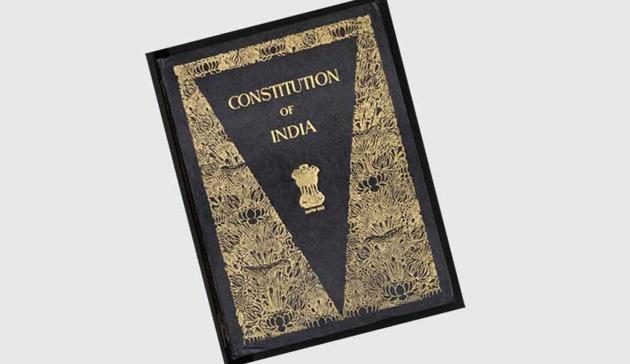The Constitution must permeate Indian society
While we celebrate the Constitution, it is time to build a national consensus so that the Constitution is a charter that speaks to our own needs and aspirations today. The time for borrowing is over.
Much has been written about the Indian Constitution recently. It has been described as revolutionary and transformative, India’s holy book of sorts. The Supreme Court has used the notion of constitutional morality to outline its foundations. The basic structure of the Constitution continues to limit the power of Parliament to amend it radically. In its 70th year, its place as the cornerstone of the Republic is cemented in public commentary.

Yet one would be hard pressed to find the real presence of the Constitution and its precepts at critical times in the life of the Republic. Every citizen has a fundamental right to free speech, yet many face arrest for innocuous cartoons and political satire; there is a fundamental duty on every citizen to promote harmony and brotherhood, yet communal, caste and class antipathy is rampant; there is a fundamental obligation on the State to maintain law and order, yet we are only just recovering from one of the most bitter election campaigns to date. The argument is not that these phenomena take place despite the Constitution — rather, it is that during key moments — when general elections are on, in a divisive atmosphere and when political leaders are irked by the common man, the spirit of the Constitution often appears to give way.
It also appears to give way when it comes to the effective functioning of key institutions of the State. Some institutions have been sporadically dysfunctional, whereas others appear to not be functional at all. The police are a prime example: despite protecting the life and limb of citizens being the core function of the State, the police are widely perceived as a politically beholden and widely corrupt institution. But neither the letter nor the spirit of the Constitution specifically checks police arbitrariness. Equally precarious is the position of Parliament, which sometimes transforms into a forum for grandstanding instead of a real check and balance on government through reason and debate. Here the Constitution has a more causal role: the 10th schedule, which makes all MPs subject to a party whip, strips them of their individuality in substantive matters, nudging them towards disruption and anarchy.
To blame the founding fathers for this state of affairs would be unfair. The Constitution was written at a time when the national mood was heady and the prospect of dysfunctional institutions and state repression in an independent country appeared non-existent. Its key objective was to signal to the world that independent India now had a new charter of governance. The primary method chosen for this task was a chapter on the fundamental rights of citizens. Despite the fact that the Constitution invested wide powers in the State to act in public interest and curtail such rights, particularly during an emergency, it achieved the task of symbolising a radical break from the past splendidly.
In terms of institutional reform, the goal of the Constitution was more modest: to continue British institutions which were tried and tested in England, of course under the overall umbrella of a republican government. Thus the unified judicial system continued despite the fact that access to courts was a major challenge. The Westminster government with an executive accountable to Parliament remained unchanged despite calls for greater provincial autonomy. The colonial bureaucracy changed its name but retained its character. BR Ambedkar himself admitted to the charge of copying a colonial constitution saying — “as to the accusation that the Draft Constitution has produced a good part of the provisions of the Government of India Act, 1935, I make no apologies. There is nothing to be ashamed of in borrowing.” This is exactly what India reeling from the Partition needed and our framers were wise to provide it.
Like our framers, on the eve of the 70th anniversary of the Constitution, we need to dwell on how the Constitution can permeate society and govern institutions more meaningfully. Civic virtue is a fundamental duty but remains unenforced, judicial enforcement of fundamental rights is sketchy, communal harmony is a sine qua non for prosperity but sarva dharma sambhava is under threat from multiple quarters and effective coordination between Centre and states is critical but the constitutional division of powers between them is outdated. Above all, the very design of the State and its bureaucratic machinery continues to be one that is geared to rule, rather than to serve the people. While we celebrate the Constitution, it is time to build a national consensus so that the Constitution is a charter that speaks to our own needs and aspirations today. The time for borrowing is over.
Arghya Sengupta is research director, Vidhi Centre for Legal Policy.
The views are personal






